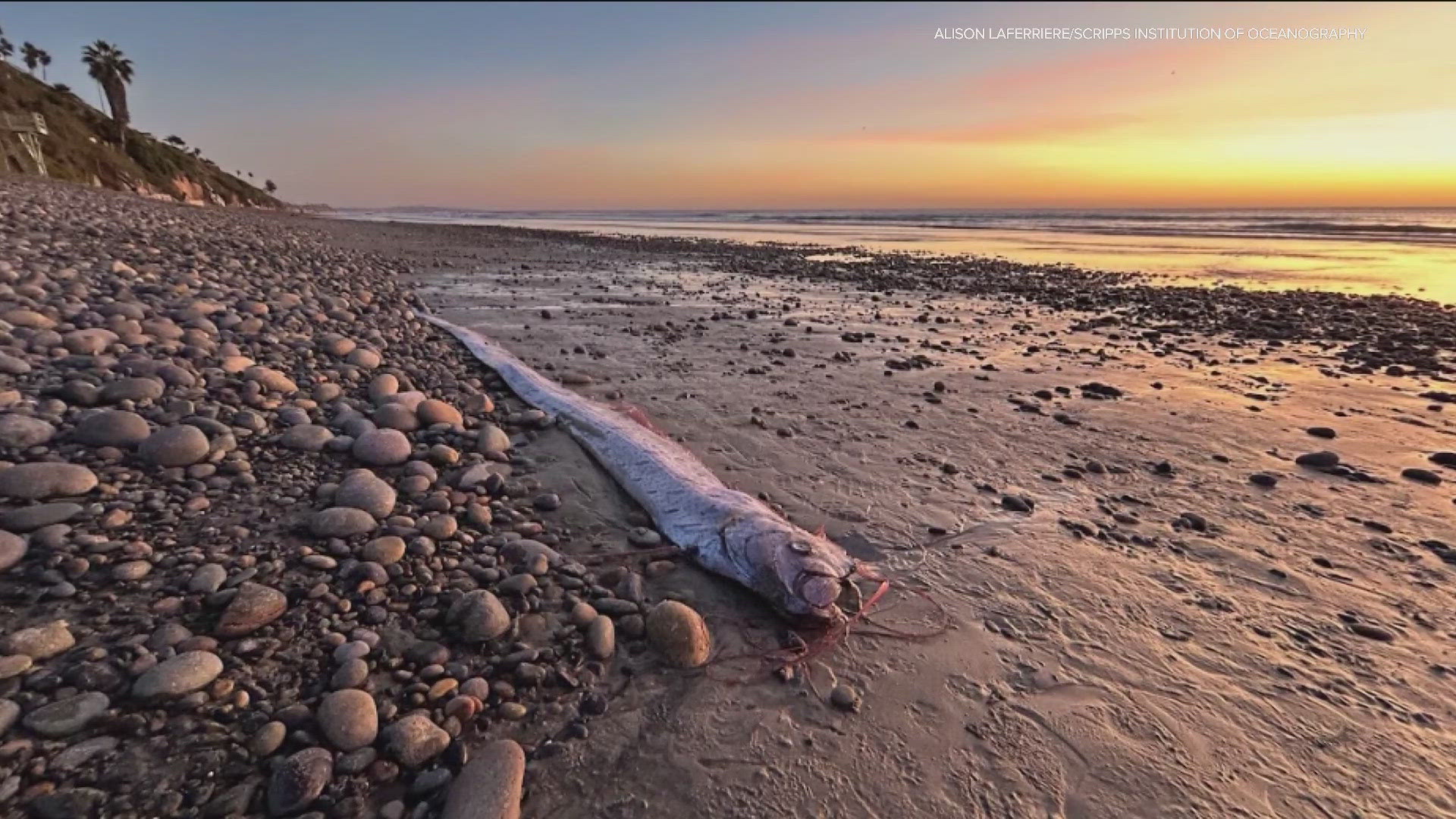SAN DIEGO — A rare oarfish washed ashore in Encinitas last week. This discovery marks the second time this year that one of these elusive deep-sea creatures has been found on our county's coastline.
Alison Laferriere, a graduate student at Scripps Institution of Oceanography, stumbled upon the 9.5-foot long fish during a beach walk. "I thought, 'Wow, this is amazing. I can't believe there's one right here,"' Laferriere recounted.
Oarfish sightings are exceptionally uncommon, with less than two dozen washing ashore in California over the past 120 years.
Ben Frable, a collection manager at Scripps Institution of Oceanography, explained, "They're a kind of open ocean, generally deep-sea fish. They probably like to hang out closer to 500 to 1000 plus feet underwater so we don't encounter them that often, but occasionally."
The fish has been transferred to the Southwest Fisheries Science Center for examination. Scientists hope to determine why it washed ashore through dissection and analysis.
As for why the fish washed ashore, Michael Drexler, a fisheries scientist at Ocean Conservancy, said there could be several reasons.
"Fish, like all animals are going to look for things to eat, comfortable places to live, mates and food... and so my guess would be this oarfish is looking for either of those things or maybe sick and veered off course."
Interestingly, oarfish are sometimes referred to as "doomsday fish" due to an ancient Japanese legend suggesting they surface to warn of impending disasters.
However, Drexler noted, "I know researchers have looked, especially on the west coast and haven't found that relationship yet."
Despite their rarity, oarfish are not considered an endangered species. They are, however, notable for their impressive size.
"They're actually the largest non-shark fish... they can get up to 35 feet long," Frable added.
This recent discovery follows another oarfish sighting in La Jolla earlier in August. After examination, researchers found no obvious cause for that fish's death.
Once scientists complete their work on this latest specimen, it will be added to the Scripps collection for future study, contributing to our understanding of these fascinating deep-sea dwellers.

